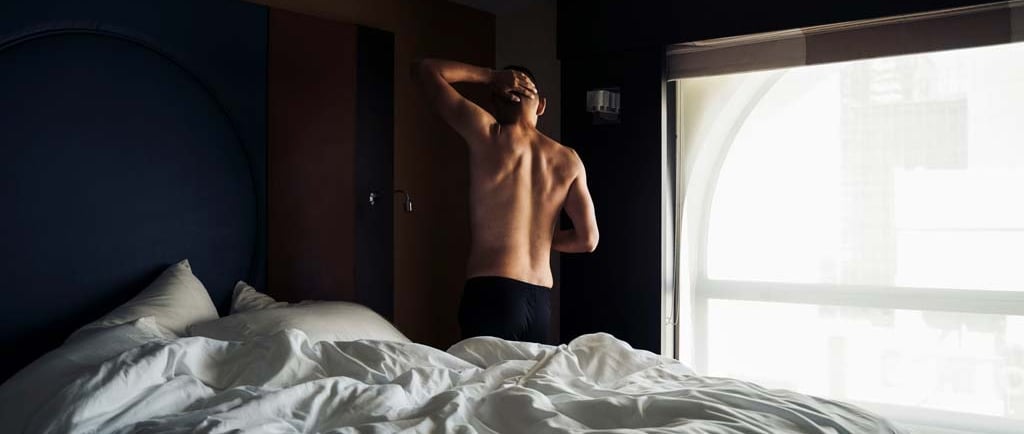Are you getting up often at night to pass urine?
Getting up at night can be a sign that something is not working well with your bladder or prostate. However, if you are passing urine often only at night, you will likely need further evaluation with a bladder diary. Often there are other reasons why you are getting up at night and these include age, medical problems such as heart problems or chest problems, problems with hormone release in the brain or urinary problems.
URINARY SYMPTOMS
Ivo Dukic
1/31/20242 min read
Nocturnal Polyuria: The Mystery of Lots of Nighttime Bathroom Visits
For professionals juggling demanding schedules, quality sleep is a non-negotiable commodity. Yet, the frustratingly frequent pit stops to the bathroom during the small hours can shatter even the most meticulously crafted sleep hygiene routine. If this scenario resonates, you're not alone. Nocturnal polyuria, the medical term for excessive urine production at night, disrupts sleep quality and hinders your energy during the day for many.
Just like frequent urination during the day can have various causes, passing urine mainly at night (nocturnal polyuria) also has a wide variety of causes. Ignoring it can not only compromise sleep and daytime productivity but also mask potentially serious medical conditions. Mr. Ivo Dukic, Consultant Urologist, offers comprehensive evaluation and tailored investigations to find the root cause of your nocturnal waterworks and restore your precious sleep.
Understanding getting up at night
Unlike our days filled with coffee and meetings, our bodies are designed to not pass urine at night. A hormone, called antidiuretic hormone (ADH), or vasopressin, takes centre stage at night, signalling the kidneys to reabsorb water and limit urine production. This allows for uninterrupted sleeping, ensuring you wake up refreshed and ready to tackle the day.
However, nocturnal polyuria disrupts this harmonious nocturnal symphony. When urine output exceeds a third of your 24-hour volume at night, the underlying causes need closer investigation. Let's delve into some of the potential culprits:
Causes for excessive passing urine overnight (nocturnal polyuria) include:
Diabetes: Uncontrolled blood sugar levels can damage the kidneys, affecting their ability to concentrate urine, leading to nocturnal polyuria.
Diabetes Insipidus: Insufficient ADH production, due to pituitary gland dysfunction or certain medications, results in excessive urine production even at night.
Heart Disease: Heart failure can cause fluid accumulation in the legs, which redistributes to the kidneys at night, triggering increased urine production.
Medications: Diuretics, prescribed for conditions like high blood pressure, work by flushing excess fluid from the body, potentially leading to nocturnal polyuria.
Prostate Issues: An enlarged prostate can obstruct urine flow, causing the bladder to fill more quickly and necessitate frequent urination, including at night.
Age-Related Changes: As we age, bladder capacity decreases, and kidney function diminishes, contributing to increased nighttime urination.
Other Conditions: Sleep apnea, overactive bladder syndrome, and kidney disease can also play a role in nocturnal polyuria.
Beyond the Physical
Stress, anxiety, and certain sleep disorders can also disrupt ADH release and contribute to nocturnal polyuria. Additionally, lifestyle factors like excessive fluid intake before bed, alcohol and caffeine consumption, and certain dietary choices can exacerbate the issue.
Well-being, and Peace of Mind
Our sleep directly impacts our cognitive function, productivity, and emotional well-being. Prioritizing the evaluation and treatment of nocturnal polyuria is not just about getting a good night's sleep but safeguarding your overall health.
Mr Ivo Dukic is an experienced consultant urologist who offers personalised consultations in Birmingham, United Kingdom. Schedule an appointment with him for expert, bespoke advice through his Top Doctors profile or book an appointment through Harborne Hospital, HCA Healthcare, the Priory Hospital, Edgbaston, Circle Health Group or Droitwich Spa, Circle Health.


Ivo Dukic
Contacts
e-mail: admin@ivodukic.co.uk
Telephone number for private patients:
0121 716 9046
(Mondays to Fridays 0800 - 18:00)
For NHS patients seen at University Hospitals Birmingham NHS Hospitals please get in contact on
0121 424 9011
(Mondays to Fridays 0900 - 17:00)
ivodukic.co.uk
© 2026 UrolSurg LTD


